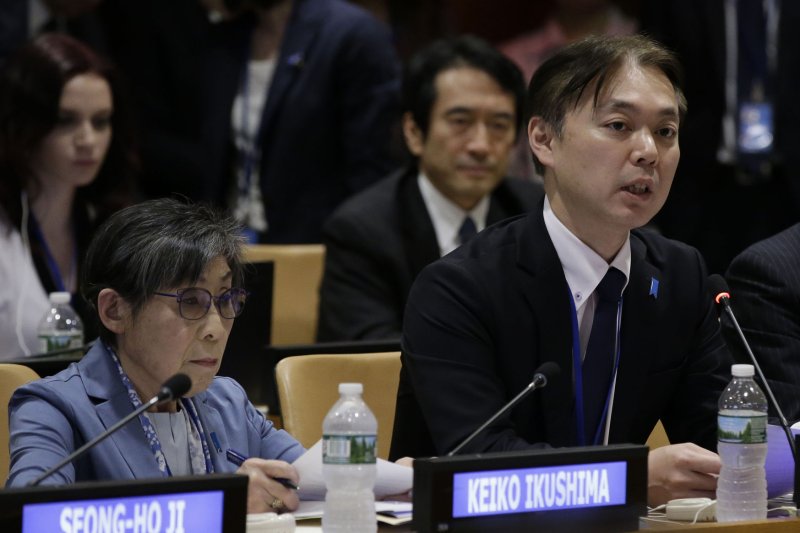North Korea lambasted the Japanese government on Monday for its focus on the issue of abducted Japanese citizens. Above, family members of abductees tell their stories on May 3 at United Nations headquarters in New York. Photo by John Angelillo/UPI |
License Photo
June 4 (UPI) -- North Korea is denouncing Japan's steadfast focus on the issue of abducted Japanese citizens.
The denouncement of Japan comes after President Donald Trump said Friday he did not want to use the term "maximum pressure" to describe ongoing negotiations with North Korea.
A dozen abductees are still officially recognized by Tokyo.
Japanese Prime Minister Shinzo Abe, who might meet with Trump this week before Trump's summit with Kim Jong Un in Singapore, has said the resolution of the abduction issue is a non-negotiable condition for talks with Pyongyang.
On Monday North Korea slammed Tokyo while raising historical issues.
Propaganda outlet Uriminzokkiri stated Japan should first apologize for "past sins."
"In a snap their politicians will wail about the abduction of Japanese citizens," said North Korea's Committee for the Peaceful Reunification of the Fatherland.
"It is a treacherous ploy to bury the sinful history of bloodshed, and avoid settling the past," the North Korean statement read.
An account of the "history of sins" committed by "Japanese imperialists" would have no end, the committee added.
Japan colonized Korea from 1910 to 1945.
North Korea also said the abduction issue has been "settled," according to the Japan-North Korea Pyongyang Declaration signed in 2002, and that Japan is to blame for the suspension of the 2014 Stockholm agreement.
In Sweden, North Korea had agreed to look into the issue of abductees.
Both Koreas and China have time and again clashed with Japan on the issue of Japan's wartime past.
In China, the issue of Japanese wartime biological experiments was raised after a Chinese academic said her findings indicate the Japanese retained a secret military for germ warfare in the northeastern city of Changchun.
Li Suzhen said the 513rd Army of Imperial Japan was confirmed to have kept a laboratory for conducting experiments on prisoners, most likely Chinese communist guerrillas and anti-Japanese activists, as was the case with Unit 731.
Li said she confirmed her findings with a Japanese war veteran with the surname Hisaki, 93, according to state media Voice of China.















